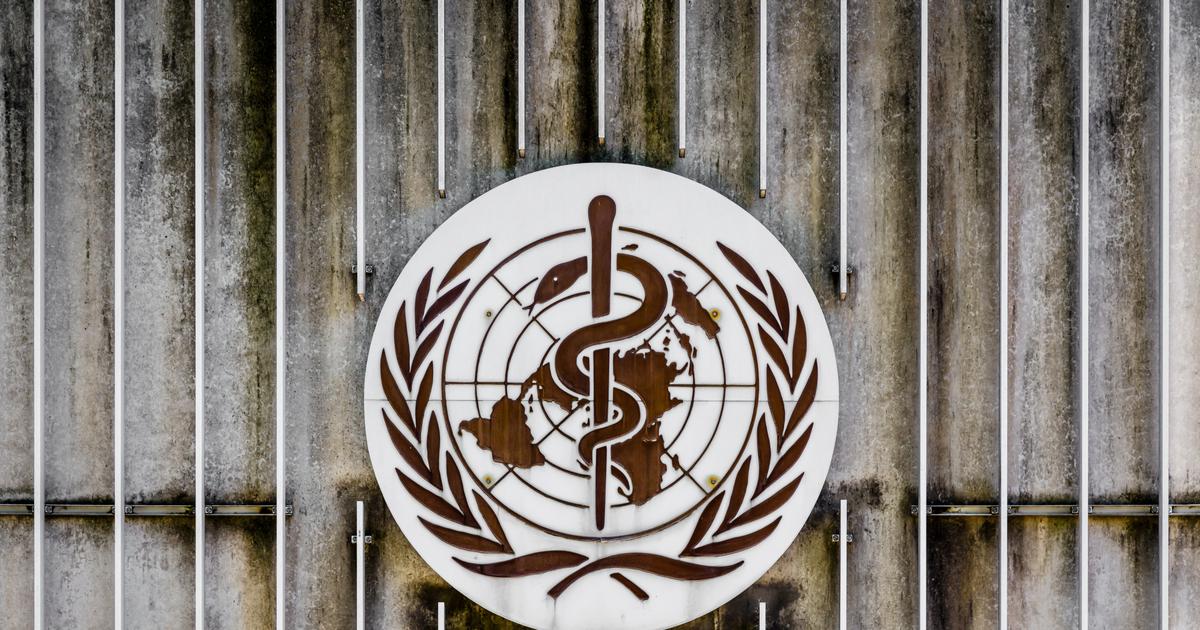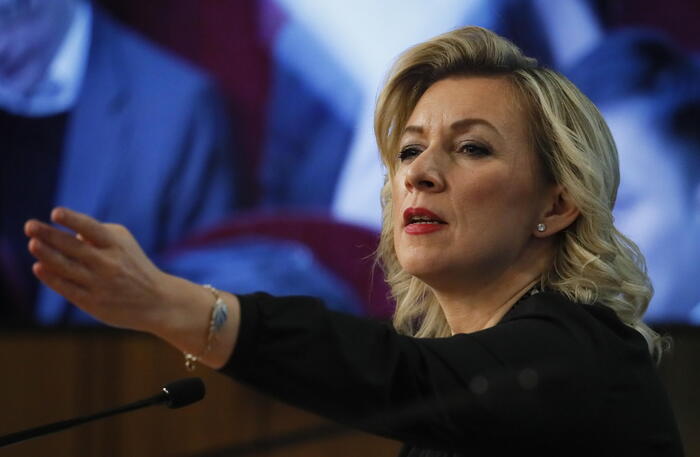Jean-Sylvestre Mongrenier is a researcher at the Thomas More Institute. He is the author of The
World Seen from Moscow.
Geopolitics of Russia and Post-Soviet Eurasia,
PUF, 2022
LE FIGARO. - “Ukraine calls on UN member states (…) to deprive the Russian Federation of its status as a permanent member of the UN Security Council and to exclude it from the UN as a whole”, said the Ukrainian Foreign Minister. Does this request have a chance of succeeding and is it legally possible?
Jean-Sylvestre MONGRENIER. -
The vote of a resolution of the Security Council requires the consensus of the five permanent members: the opposition of only one of them has value of veto.
And it is hard to imagine Russia voting a resolution in favor of its exclusion from the Security Council.
Moreover, the People's Republic of China and Russia are diplomatically aligned.
The Security Council is therefore blocked, as during the first cold war.
This is why the Ukrainian President appeals to the General Assembly of the United Nations.
At first sight, a majority vote of the General Assembly in favor of such a decision would not be enough to settle the question, but a specialist in international law could invalidate this statement.
In truth, there are legal silences and, in the final analysis, the order of the flesh is governed by power relations (the moral or legal norm does not impose itself).
This is also what the practice of the right of veto recognizes: it must be seen as a persistence of the state of nature, in the sense of Hobbes, at the very heart of the system of collective security established in 1945.
There is therefore no rule of law at the global level.
This is not the consequence of a flaw in the arrangement of the international system, ie some sort of technical problem that a little goodwill could solve.
It is in the very nature of things: the law does not apply by itself, and there is no supranational “Leviathan” to impose it on States.
Consider the old adage: “
Auctoritas facit legem, non veritas
”.
What are Zelensky's concrete objectives behind this request? Is this an attempt to totally isolate the Russian state?
The idea is to confront each UN Member State with its responsibilities and contradictions.
Claiming to see Putin's "Russia-Eurasia" as a defender of peace is a blatant lie.
It is good to point this out.
Moreover, the relationship of forces between nations is not only material: it is also established on the ideal, moral and legal planes.
The approach of the Ukrainian president is therefore coherent.
He wasn't going to embrace the cynicism of the Kremlin (or the sated nations), and tell himself that things are like that, that nothing can be done about it, that everything isn't so bad, and other nonsense.
The fight is also played out in the sphere of values.
The structural anarchy of the international system does not mean the non-existence of standards common to humanity, those recognized by natural law.
And a vast coalition of States committed to maintaining minimum rules in international relations could partly compensate for the non-existence of a supranational Leviathan.
Contrary to a fatalistic attitude, it is therefore important to target the relations that Russia maintains with a certain number of countries, and to weaken its external positions (alliances, partnerships and preferential relations).
The Ukrainian president conducts a diplomacy of the movement.
More generally, the Russian threat and the connections between revisionist powers require a grand strategy, with a diplomatic component: a mobile diplomacy, alternately cooperative and coercive depending on the circumstances.
Not a diplomacy of position which argues for a reasoned Machiavellianism to better justify immobility, hoping that the judgment of History will end up proving it right.
Such expectation is a sign of mental and spiritual helplessness.
Isn't excluding Russia tantamount to depriving oneself of the UN as a mediation body? What is the role of this organization in the Russian-Ukrainian war?
The UN is not a third body but a framework for action, and the UN “technostructure” cannot do much by itself.
Its effectiveness requires the agreement of its main member states, at least that of the five permanent members of the Security Council.
So the UN is proving powerless in Ukraine (playing the utilities, as in the grain agreement, is not an act of power).
Let us remember the bombing of kyiv on April 28, 2022, during the visit of the UN Secretary General.
A beautiful tribute from Russia to its mediation!
However, António Guterres had taken care to go first to Moscow, to the aggressor, thus giving him precedence.
In short, a collective security system relies on everyone's goodwill.
Probably that's a lot to ask.
The legal and institutional impasse in which the UN finds itself refers to what Julien Freund calls the "essence of politics": politics ("
lo politico
", as opposed to "
la politica
", contingent and variable) is a activity consubstantial with the human condition;
its primary datum is the conflict between men.
Without wars or conflicts between human communities, there would be no “politics”.
Everything would come down to the administration of things.
Read alsoCondemning "the glorification of Nazism", Moscow's repeated strategy at the United Nations
If the purpose of a state is to ensure internal harmony and the security of the human community it takes charge of, it is not possible to eliminate once and for all the primary given (the conflict) and the presuppositions of politics. (the relationship of command and obedience, the distinction between private and public, and the distinction between friend and foe).
Moreover, the Charter of the United Nations recognizes the right of self-defence of each State.
And the alliances bring together countries that share security issues: this is their raison d'être.
There is something beyond politics - morality, aesthetics, religion and eschatology - but that does not mean the end of politics.
Until the consumption of centuries.
Doesn't the UN Charter represent, in spite of everything, a limit to Vladimir Putin's exactions? Is it really desirable for Russia to free itself from it?
One can certainly say that things could be even worse, in order to justify a policy of "little arm".
Looking at the facts, it is difficult to see how the normative power of the UN Charter would limit Russian action in Ukraine.
The limits that Putin comes up against are material, tactical-operational, strategic, geopolitical, finally conceptual.
He simply did not have the means to carry out his "special operation", which the Ukrainian military resistance, and the subsequent counter-offensives, demonstrated by the fact.
And it is important to inscribe these limits over time, which refers to the historical responsibility of the Western powers.
The Russian threat is structural.
Read alsoThe day Emmanuel Macron met Vladimir Putin in the Kremlin
However, what Putin has already implemented in the occupied territories – torture, deportation of civilian populations, child trafficking – and the voluntary destruction of Ukrainian civil infrastructure give an exact idea of his political intentions.
This is an enterprise to eradicate and destroy a free and independent nation, not simple “exactions” by soldiers left to fend for themselves.
If Putin had had full freedom of action, this enterprise would have been systematized throughout Ukraine.
And what does the UN Charter matter!
Putin sees Russian sovereignty as state idolatry and irresponsible omnipotence.
Unlike Jean Bodin, theoretician of the sovereign state, there is no Gospel,
of natural law and fundamental laws which limit its hypercracy.
Putin is not a conservative, or a
Aufhalter
”, but an “
Aufbrecher
”: he destroys and sows chaos.
Read alsoWith the last heroes of Bakhmout who resist the deluge of Russian fire: the story of the special envoy of Figaro
Let's widen the focus.
The rehabilitation of Stalin in Putin's Russia, the celebration of Dzerzhinsky (the founder of the Cheka), the denial of the "genocide-famine" of which Ukraine was the victim (the
Holodomor
), the justification of the crimes of communism ("
the price of power"
), or even the banning of the NGO Memorial, leave one wondering about the thesis of a "measured" Putin and embarrassed at the corners, because of Russia's responsibilities as a permanent member of the Council of security.
Blindness or hypocrisy?
For the Kremlin, the UN and international law boil down to one thing: the right of veto.
In other words, the diplomacy of
"niet"
to
New York, war crimes and the claim to impunity in the theater of operations.
Putin thinks and acts like a Chekist.
Why didn't we realize that earlier.








